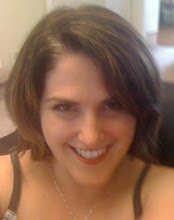Monday, May 10, 2010
Book 27: Three Wishes
Monday, February 22, 2010
Book 11: Stolen Innocence
Sunday, January 3, 2010
The Unlikely Disciple
Book 1: The Unlikely Disciple: A Sinner’s Semester at America’s Holiest University
Kevin Roose
Like many college students, Kevin Roose wanted to experience a semester in a different culture. Instead of choosing Europe, though, Roose left Brown University for a semester at Jerry Falwell’s Liberty University in Lynchburg, Virginia.
Roose’s parents are Quakers, but Kevin himself grew up largely non-religious. A friend gave him a crash course in evangelical Christianity before he started classes with advice like “Cursing will give you away immediately. Best say you’re a new Christian.” Roose knew he would be writing about his experiences at Liberty, so he chose not to disclose his full history. He wanted to learn about the college, its faculty, and students as they truly are.
Brown University is a secular, liberal university. Roose’s adjustment to Liberty included a strict dress code, no cursing, no dancing, no R-Rated movies, among other things. Some of the biggest adjustments for Roose were academic- like the school’s belief in Young Earth Creationism. That is, that the earth is about 6000 years old and evolution is a complete farce. He was also learning about the doctrine of Biblical infallibility- that Bible is literally true- the earth was created in six twenty-four hour days, and a bush really did catch on fire and talk to Moses.
The thing that struck me the most about Roose’s experience is that while he went into this with a preconceived idea of what the people he encountered would be like, he was also open to experiencing who they truly are. Roose found that while he did not share the same fundamental beliefs with his peers, that in general, they were more alike than different. To me, that was what was most shocking and meaningful to Roose.
I don’t want to reveal too much more about Roose’s experiences here, but I do have some other color to add to reading his memoir. Liberty is not the most conservative school, with respect to rules and regulations, as some of the other US conservative colleges and universities, which Roose cites in his book. I’ve had personal experience with the elementary schools associated with two of the other institutions Roose mentions.
At the time of publication of the book (March, 2009), some of the prohibitions listed at these institutions included no “secular” music and even more strict dress codes (women are allowed to wear pants only between their dormitories or in their dorm courtyards- not to any classes or in public) and there is to be no physical contact between couples- no hand holding, and not even eye contact that is deemed “too intense.” Now, the elementary schools I attended didn’t have all these same prohibitions, or maybe not to the same degree. I was required to wear a dress every day. I was the rebel who listened to rock and country music, although it was specifically prohibited by the school. Prayer and daily Bible lessons were core parts of the curriculum. I remember the rote memorization of the Baptist Catechism (Who made you? God made me. What else did God make? God made me and all things...). There was a test on it every Monday. When Roose recalls the challenge he had in learning the books of the New Testament, I was able to recall, after all these years, the song I had to learn in maybe third or fourth grade that listed all twenty-seven books in order. I’m still able to recite the song if I think about it a bit, and it turned out someone taught it to Roose as a study aid. I will say I’ve not had much use for that particular ditty in the last several years, but good to know that rote memorization has longevity in some cases.
I switched to public schools in grade six. I think I must have experienced, to some degree, a culture shock similar to Roose, although in the reverse. I was being exposed to so much more diversity, to more critical thinking. I didn’t realize at the time how much my world was opening up by being in this new environment. I wish it had happened sooner. Until then, I saw things as very black or white. Something was either OK or it was a SIN. And the SIN list was much longer than the OK list. As I was exposed to more, and as I got older, I realized how much grey there is in the world- and how there are very few absolutes; that “Always” and “Never” should rarely be used. I liked that I could identify with Roose on his journey.
Ironically, as Roose lived in the Liberty community for that semester, and his world view was somewhat narrowed, he still grew and learned about himself. He analyzed the religion he was being exposed to and determined for himself whether or not it was a good fit. He learned that even if he doesn’t necessarily believe that prayer works, the idea of someone supporting you through prayer is somehow comforting.
All in all, I thought Roose was very fair to his Liberty classmates. He might disagree with some of their philosophies, but he found the people to be largely good people. In fact, I get the impression from the book that he still keeps in touch with a number of them today.
If you like memoirs, if you’re intrigued by different religions, if you’ve ever watched a Mega-Church preacher on a Sunday morning and wonder what would drive a person to attend, then I think this book is worth a whirl.
Book 2 is one my Nora Roberts- complete fun, and the closest I've gotten yet to a true "romance novel."
